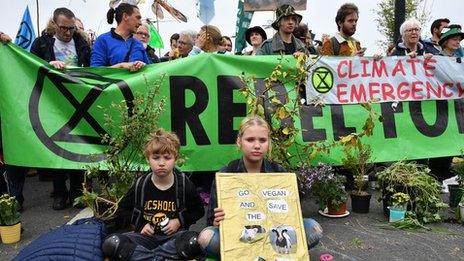Extinction Rebellion: Met Police asks for 200 extra officers
- Published
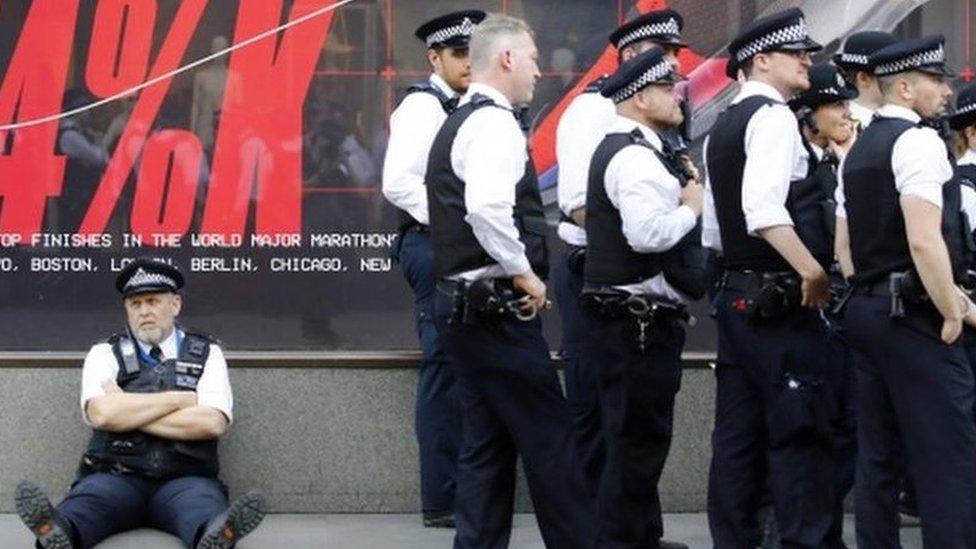
About 200 extra officers from other police forces are being sent to London
The Met Police has requested about 200 extra officers from neighbouring forces to help deal with the Extinction Rebellion protests in central London.
Oxford Circus was reopened to traffic on Saturday afternoon after officers cleared demonstrators. Protesters continue to occupy Waterloo Bridge and Parliament Square.
The Met said 750 people have been arrested and 28 have been charged.
Commissioner Cressida Dick said it had caused "miserable disruption".
"Every day we have had over 1,000 officers - and now over 1,500 officers - working to police these protests," she said.
"It's had an impact not just on the police but also on the public."
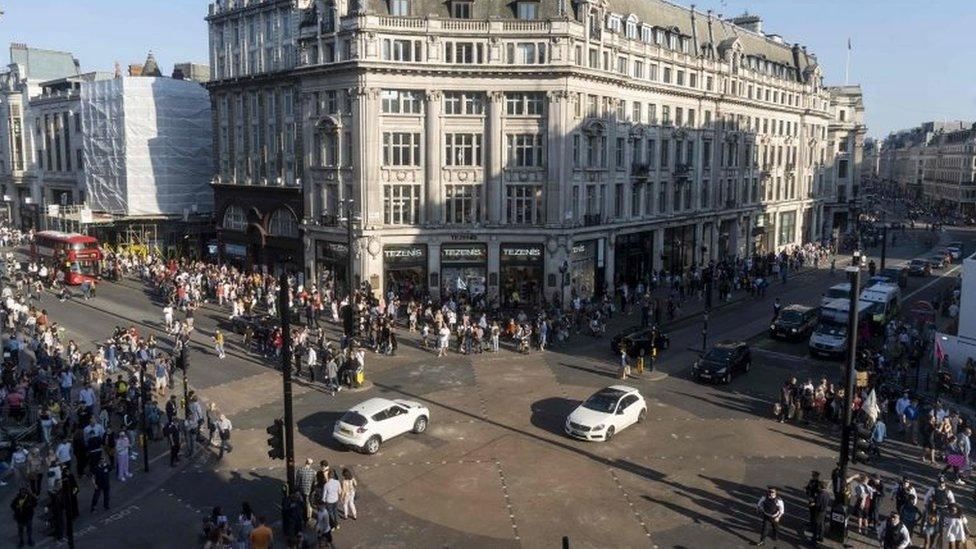
Pedestrians and vehicles cross the Oxford Circus junction after police cleared protesters
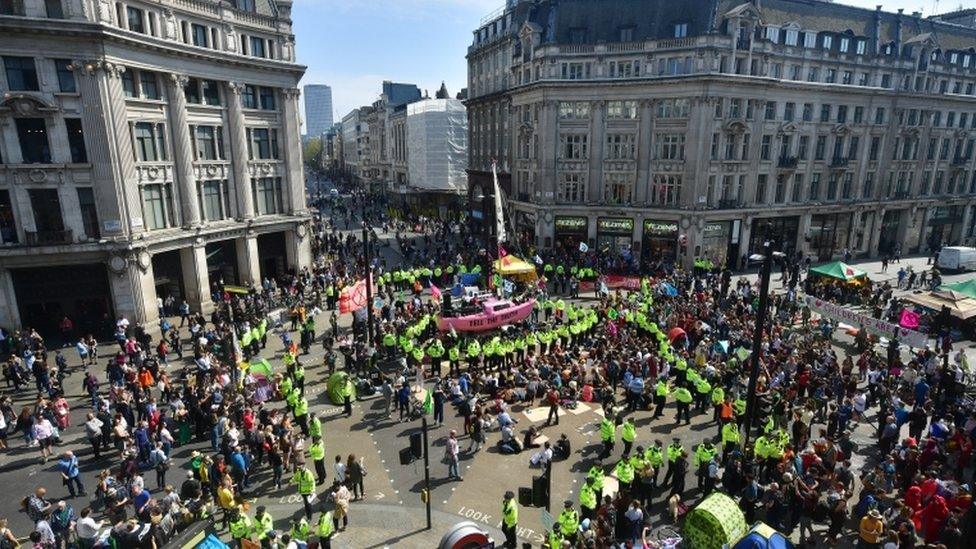
The junction had previously been blocked by a pink boat since Monday
At about 17:30 BST, police were able to clear protesters from the centre of Oxford Circus, allowing for traffic to flow through normally.
Dozens of officers also carried out arrests on Waterloo Bridge and slowly removed campaigners who had attached themselves to a truck acting as a stage.
Ms Dick said the force was still liaising with others and encouraging them to go to Marble Arch to carry out a "lawful protest".
"If you don't want to go to Marble Arch, then go home," she said.
"I've been walking about there today and I can assure you many people are very fed up."
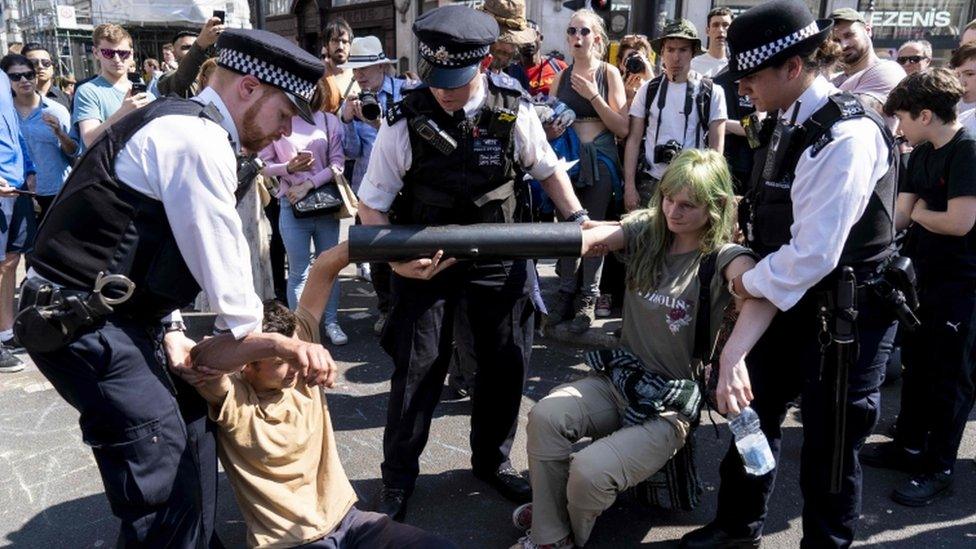
Arrests in connection with the protest since it began on Monday have topped 750
It is understood the Met made a request to the National Police Coordination Centre (NPoCC) "late on Thursday" for help with extra officers from neighbouring regions in the east and south-east of England.
Essex Police, Kent Police, Hampshire Constabulary and Sussex Police confirmed they had sent officers to London under national mutual aid protocols.
A spokesman for the National Police Chief's Council said "forces routinely share officers through mutual aid" in order to deal with large-scale events.
He added: "It is used to ensure an appropriate police presence exists where there is increased demand for it.
"NPoCC works with forces to determine their requirements should the need arise."
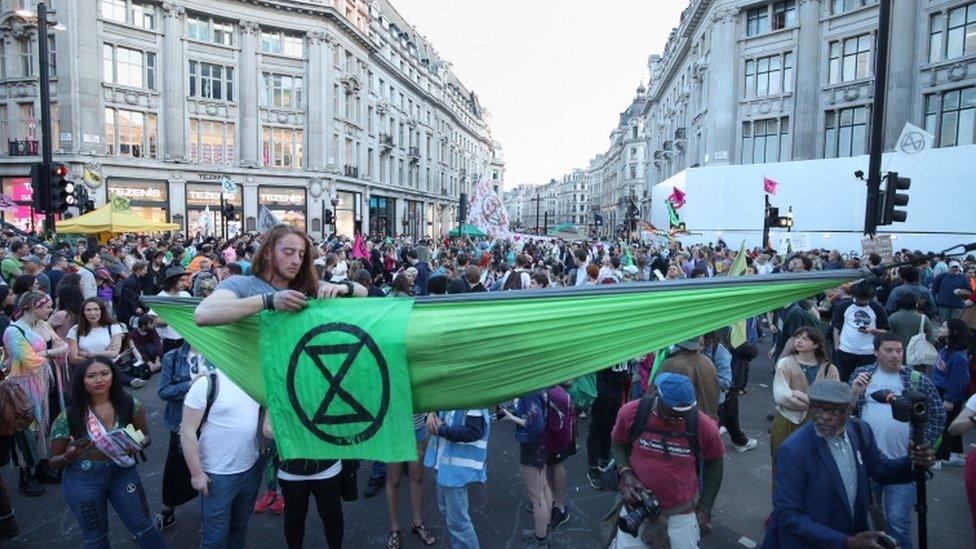
Protesters had blocked traffic through Oxford Circus since Monday
The Met also quelled rumours that its cells are full.
A spokesman said: "One thing that is unusual about this demonstration is the willingness of those participating to be arrested and also their lack of resistance to the arrests.
"Our custody suites are not full and we are continuing to arrest those who are breaking the law."
He said contingency plans were in place should they become full.
In London, there are 41 custody suites - 34 of which are owned by the Met, six by British Transport Police and one in Bishopsgate by City of London Police.
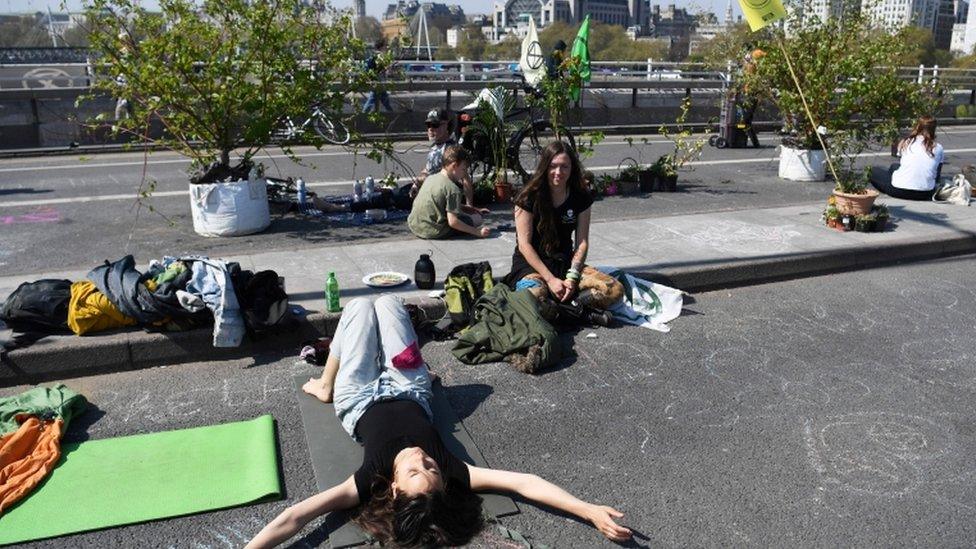
Protesters have also occupied Waterloo Bridge and Parliament Square
Officers on Waterloo Bridge have formed cordons while activists continue to play music and passers-by gather to watch.
Members of the public watching have been asked to move on.
Earlier, one demonstrator said to the group: "Holding the space is important and being arrested is not undignified.
"We are here for an important reason, so we should be prepared to be removed for that. Being arrested is a statement."
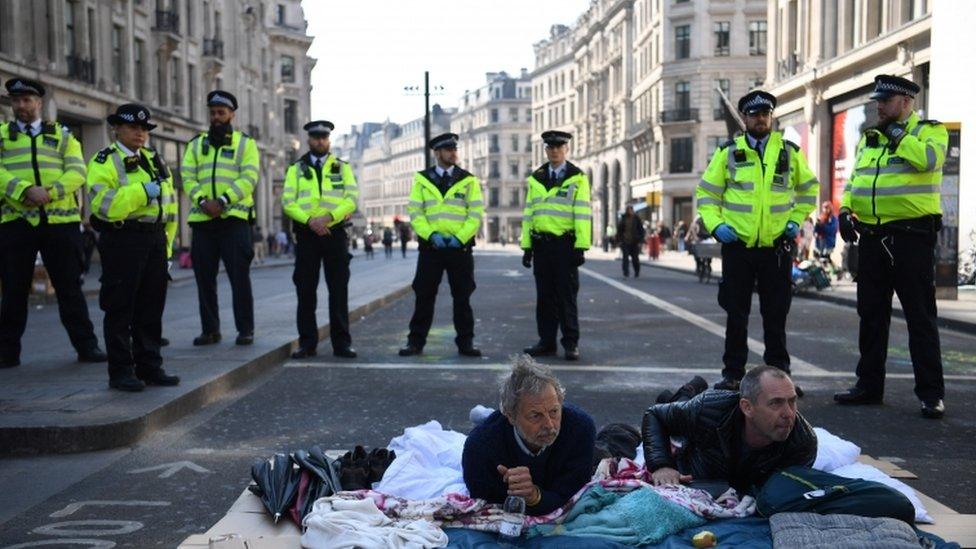
The Met previously said it has had to cancel officers' leave over the Easter break
On Good Friday, police removed a pink boat that had been parked in the middle of Oxford Circus since Monday.
Earlier that day, actress Dame Emma Thompson addressed demonstrators from the top of the ship.
Extinction Rebellion said nearly 50,000 people had signed up to join the group since the protests started.

What is Extinction Rebellion?
The co-founder of the protest group invites people to join
Since the group was set up last year, members have shut bridges, poured buckets of fake blood outside Downing Street, blockaded the BBC and stripped semi-naked in Parliament.
It has three core demands: for the government to "tell the truth about climate change"; to reduce carbon emissions to zero by 2025; and to create a citizens' assembly to oversee progress.
Controversially, the group is trying to get as many people arrested as possible.
But critics say they cause unnecessary disruption and waste police time when forces are already overstretched.
- Published20 April 2019
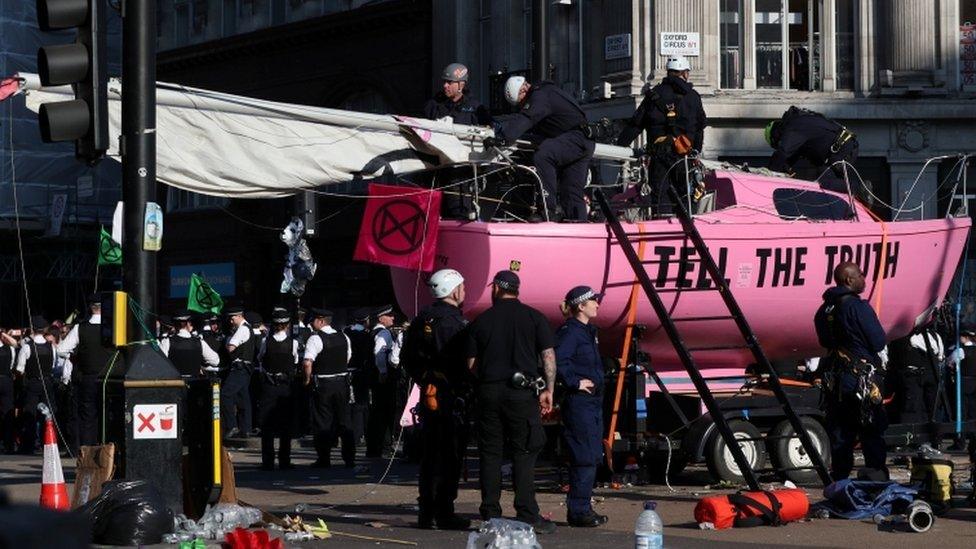
- Published18 April 2019
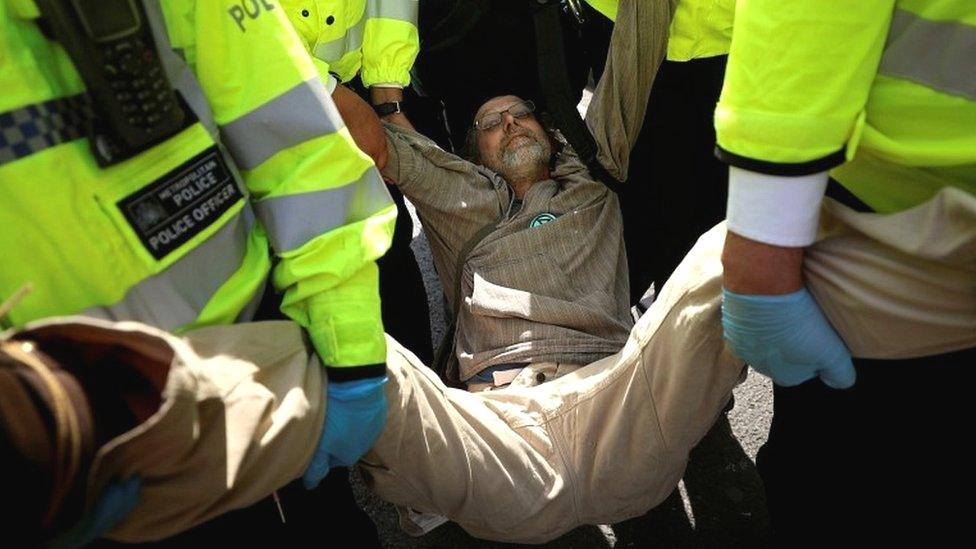
- Published16 April 2019
